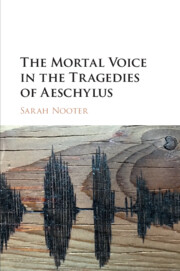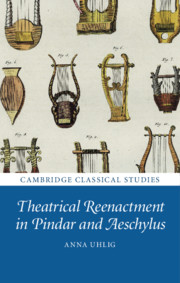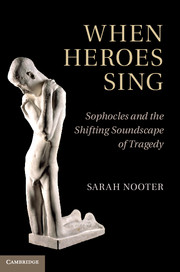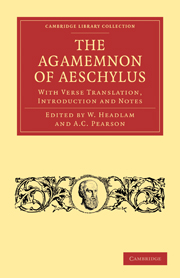The Mortal Voice in the Tragedies of Aeschylus
Voice connects our embodied existence with the theoretical worlds we construct. This book argues that the voice is a crucial element of mortal identity in the tragedies of Aeschylus. It first presents conceptions of the voice in ancient Greek poetry and philosophy, understanding it in its most literal and physical form, as well as through the many metaphorical connotations that spring from it. Close readings then show how the tragedies and fragments of Aeschylus gain meaning from the rubric and performance of voice, concentrating particularly on the Oresteia. Sarah Nooter demonstrates how voice - as both a bottomless metaphor and performative agent of action - stands as the prevailing configuration through which Aeschylus' dramas should be heard. This highly original book will interest all those interested in classical literature as well as those concerned with material approaches to the interpretation of texts.
- Provides a new approach to how Greek drama was experienced and had meaning, making use of current theory on voice and sound
- Proposes a new way of understanding Aeschylus' plays based on close reading
- Gives a new account of ancient Greek poetry in view of the philosophy of Plato and Aristotle
Product details
August 2022Paperback
9781316508978
319 pages
228 × 151 × 18 mm
0.47kg
Not yet published - available from May 2025
Table of Contents
- Introduction
- 1. Voice, body, stage
- 2. Voice in early Aeschylean drama and Aristophanic parody
- 3. Voice and ventriloquism in Agamemnon
- 4. Voice and the mother in Choephori
- 5. Voice and the monstrous in Eumenides.






